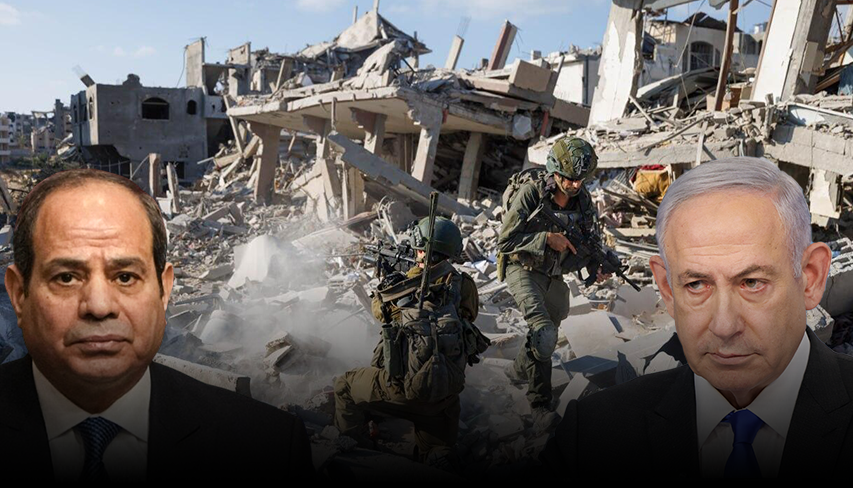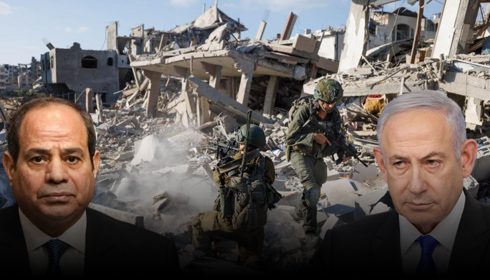Israel’s plan to push Palestinians south ahead of a northern Gaza offensive has sparked tensions with Egypt, which fears a mass influx of refugees across its border, as both sides trade criticism over the impending attack on Gaza City.
2 View gallery


Egyptian President Abdel Fattah El-Sisi, Prime Minister Benjamin Netanyahu
(Photo: AP, Ziv Koren, Mark Israel Salem)
Netanyahu called on Egypt to accept more Palestinian refugees without specifying whether Israel would allow them to return to Gaza after the war. He maintained that Israel would not force anyone to leave and sought to enable anyone who wants to leave Gaza to do so. “The Egyptian Foreign Ministry prefers to confine Gaza residents who want to leave the war zone against their will,” Netanyahu said on Friday.
Israeli officials have previously stated that Gazans should be allowed to leave voluntarily after nearly two years of war, fear, and deprivation. However, leaving is not feasible for most at this stage, with many worried Israel may never permit their return if they do manage to escape. The IDF has directed those still in Gaza City, many already displaced, to move to a “humanitarian area” in southern Gaza near the Egyptian border.
Egyptian Foreign Minister Sameh Shoukry condemned Israel on Saturday, saying the country wants to “expel residents from their land” and calling Netanyahu’s framing of the evacuation as “voluntary migration” absurd. Aid organizations warn that after nearly two years of war, Gaza offers almost no safe space for civilians. Many fear Israel aims to make living conditions so unbearable that people will feel compelled to leave.
Despite cooperation during the war, clashes have repeatedly erupted between Israel and Cairo—particularly over Israeli proposals to transfer Palestinians to Egyptian territory. In the early months of the conflict, Egypt allowed tens of thousands of Palestinians to enter via the Rafah crossing, but closed it in protest after Israel moved into Rafah.

